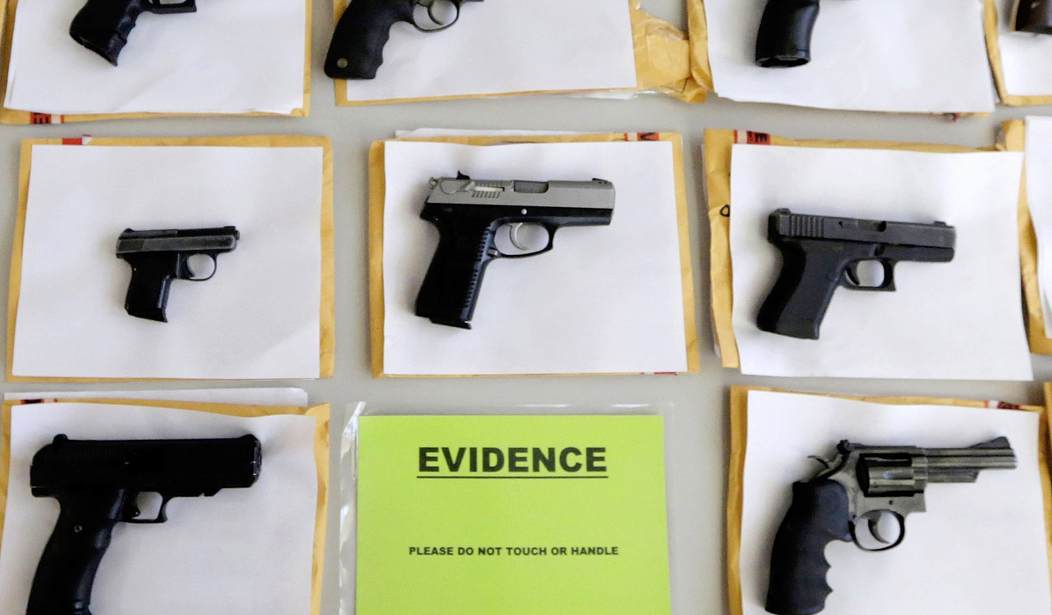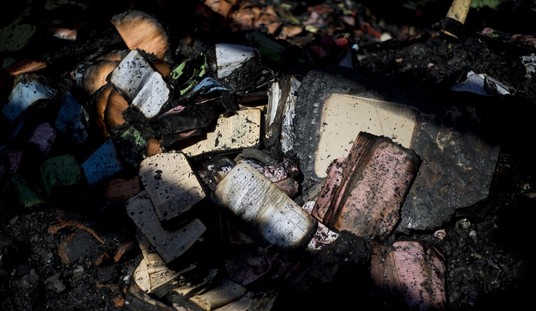“I walk through the valley of the Chi where death is,” Kanye West rapped in “Jesus Walks,” and it hasn’t gotten any better since he laid down that track in 2004.
That year, 455 people were shot to death in Chicago.
More than 400 people have already been shot to death in Chicago in 2016, and another 2,300 have been wounded by gunfire.
“Each weekend in Chicago is bloodier than the last,” House Republican Leader Jim Durkin (R) said.
Illinois Gov. Bruce Rauner (R) has signed legislation designed to – if not close down what’s known as the Iron Pipeline – at least slow down the traffic of guns brought into Chicago from more gun-friendly states.
The Iron Pipeline is the name given to the I-95 corridor that outlaws use to bring guns from southern states that don’t have strict gun laws into New York City, where it is harder to buy a gun.
The Pipeline is also used to describe I-90, one of the routes to bring weapons from gun-friendly Indiana into Illinois and eventually Chicago.
The bill signed by Rauner increases penalties for firearms trafficking and is intended to reduce the growing gun violence epidemic in Chicago.
“We must stand up and help our kids and our communities find safety from violence,” said Rauner. “Children are often in the crossfire. They’re vulnerable and impressionable. They deserve to see better things in the world. They deserve to feel safe in their homes. They should not live in fear or have their innocence shattered.”
Rep. Durkin said many of the shootings involved illegally acquired guns by Chicago street gangs. He also said it is estimated that approximately 60 percent of guns used to commit violent crimes in Chicago were purchased outside of Illinois.
Illinois gun laws have been more focused on holding the shooter accountable, but not the person who armed the shooter. Durkin and Rauner said that would change with House Bill 6303.
Registering handguns and making it tougher to bring guns across state lines into Illinois isn’t enough for Rep. Sonya Harper (D). Seven days after Rauner signed HB 6303, she offered legislation that would force ammunition manufacturers to code the bullets they sell.
Harper grew up in a tough neighborhood in Chicago. Harper went to her first funeral for a loved one cut down by gunfire when she was only 14 and has been going to what seems like one funeral after another ever since.
“We’re not trying to get rid of responsible gun owners’ guns, we just want to know how the guns and the bullets are getting into the hands of our youth and causing senseless harm and murder,” Harper said when she introduced her proposal Aug. 30.
Each bullet casing would be encrypted with a code that police could then use to track down the store where it was purchased and who bought it.
Bob Owens, the editor of Bearing Arms, immediately took aim at Harper’s proposal with a column explaining why her idea was, to be kind, impractical.
“Chicago’s homicide detectives are already grossly overworked and don’t have enough time to clear cases where they have solid evidence. Their clearance rate is just 46 percent. The majority of Chicago’s murders already go unsolved,” Owens wrote.
“Harper’s proposed bill to serialize ammunition would result in criminals salting crime scenes with recovered range brass, sending detectives on wide goose chases and ensuring that the murder clearance rate plummets even further, all but ensuring that murderers will not be caught,” Owens added.
But even if none of the above was true, Owens said the idea of putting serial numbers on bullets is ludicrous.
“If you put serial numbers on bullets, there is the simple fact of physics to contend with that when bullets hit things at a high rate of speed, they often deform or shatter. In fact, fragmentation is a specific design feature in many common bullets,” Owens wrote.
But Matt Harrington, CEO of Ammo Coding Systems, said his company had created a new patent-pending technology to code bullets, and it works.
“The key to ACS is the unique code that is micro-laser engraved on factory-produced ammunition. This laser engraving is etched on both the projectile and the inside of the cartridge casing. Each code will be common to a single box of cartridges and unique from all other ammunition sold,” the Ammo Coding Systems website claimed.
Harrington said the technology wouldn’t prove who pulled the trigger, but it would show who bought the bullets. And that, he argued, would give police a valuable tool in shooting investigations.
“You’re going to have to explain, Mr. Smith, why is the bullet you bought at Walmart now in this 5-year old’s head, on the West Side of Chicago. Explain that,” Harrington said the police would be able to say.
Twenty other states are considering this legislation, but if Harper’s bill is approved Illinois would be the first to enact it. So even if it ammunition coding become the law in Illinois, bullets purchased out-of-state and brought into the state through the Iron Pipeline would not be laser coded.
Fred Lutger of Freddie Bear Sports told Fox 32 TV in Chicago that Rep. Harper was missing the real target.
“Don’t go after these bullets and this bullet stamping thing; that’s ridiculous,” Lutger said, “Go after the gangbangers, the people who are let out on the streets from parole.”









Join the conversation as a VIP Member